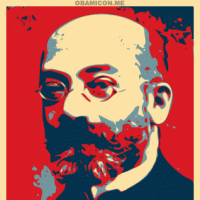Mesaĝoj: 19
Lingvo: English
Rogir (Montri la profilon) 2009-februaro-09 15:57:19
jchthys (Montri la profilon) 2009-februaro-09 21:53:24
I was thinking recently about the best form of metre for Esperanto, quantity or stress, and I decided that a more stress-based system was better.
Now concerning Esperanto rhyme: isn't it a bit boring, considering that the endings indicate grammatical form?
erinja (Montri la profilon) 2009-februaro-10 13:37:46
russ (Montri la profilon) 2009-februaro-11 08:37:43
A lot of older books are floating around the net in pdf form with file names of the form "eo - author - title.pdf" from a now-defunct website elibrejo. Google for
"eo - platono" pdf
and you'll find various links to some by Plato, for instance, or "eo - vallienne" pdf gets you links to some translations of Vallienne.
hiyayaywhopee (Montri la profilon) 2009-februaro-11 22:38:58
jchthys:Well, I don't think I'll do it anytime soon, and the whole thing maybe never...Rhyme isn't just matching up the sounds of the last syllables of words: the sounds have to match starting at the last accented syllable. So "arbo" and "hundo" or "mother" and "father" don't rhyme; "ŝtono" and "duono", however, do.
I was thinking recently about the best form of metre for Esperanto, quantity or stress, and I decided that a more stress-based system was better.
Now concerning Esperanto rhyme: isn't it a bit boring, considering that the endings indicate grammatical form?
jchthys (Montri la profilon) 2009-februaro-11 23:53:28
hiyayaywhopee:I know, but the rhymed words still are almost always the same part of speech.jchthys:Well, I don't think I'll do it anytime soon, and the whole thing maybe never...Rhyme isn't just matching up the sounds of the last syllables of words: the sounds have to match starting at the last accented syllable. So "arbo" and "hundo" or "mother" and "father" don't rhyme; "ŝtono" and "duono", however, do.
I was thinking recently about the best form of metre for Esperanto, quantity or stress, and I decided that a more stress-based system was better.
Now concerning Esperanto rhyme: isn't it a bit boring, considering that the endings indicate grammatical form?
russ (Montri la profilon) 2009-februaro-12 22:04:49
jchthys:Read some of Grabowski's poetry, and I think you'll find it's not boring.hiyayaywhopee:Rhyme isn't just matching up the sounds of the last syllables of words: the sounds have to match starting at the last accented syllable. So "arbo" and "hundo" or "mother" and "father" don't rhyme; "ŝtono" and "duono", however, do.I know, but the rhymed words still are almost always the same part of speech.
jchthys (Montri la profilon) 2009-februaro-12 22:31:46
Frakseno (Montri la profilon) 2009-februaro-13 18:25:48
jchthys:I found a German site that provides free electronic copies of old Esperanto books: http://www.onb.ac.at/sammlungen/plansprachen/fru..., including poetry by Grabowski.Very nice link! Thanks for sharing!!





